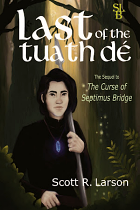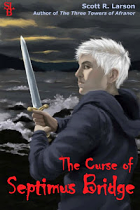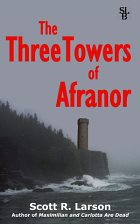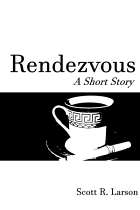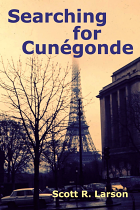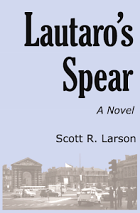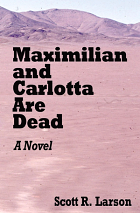Gone but not forgotten XXV
It’s that time again. Time for my annual look back at the movie and entertainment people who passed away during the previous calendar year. I don’t pretend that my list is exhaustive, only exhausting.
For those who actually pay attention to this sort of thing, I am not listing all my previously written tributes at the beginning this time. Instead, I am listing the people I have already written about in their appropriate alphabetical places with links to the appropriate commentary.
For those who don’t remember from last year, the proper way to read this list is as follows: Put on the song “Thanks for the Memory.” If you don’t have a copy, go find one. (Legally, please.) It’s usually sung by Bob Hope and Shirley Ross (from the movie The Big Broadcast of 1938), but there are also versions by Dorothy Lamour, Bing Crosby, Ella Fitzgerald, Frank Sinatra and Harry Nilsson. Once you have the song, set it to play with automatic repeat. (If you are using vinyl media, ask a friend to move the needle back to the beginning each time it finishes.) Once the music begins, begin reading my thank you’s to the various departed below. Also, you can open a bottle of scotch. I don’t know if that actually helps in reading this, but it certainly helps in writing it.
These are directors, writers and other various professions. Actors will follow next week.
Directors
• Michael Cacoyannis: Thanks for introducing us to Melina Mercouri in her first film, Stella. And for making lots of movies with Irene Papas, including including The Trojan Women, which featured the powerhouse triumvirate of Katharine Hepburn, Vanessa Redgrave and Geneviève Bujold. But mostly thanks for making the life-affirming hit starring Anthony Quinn, Zorba the Greek.
• Gualtiero Jacopetti: Click here
• Charles Jarrott: No thanks for the disaster that was the musical remake of Frank Capra’s Lost Horizon (with songs by Hal David and Burt Bacharach), but thanks for being among the first to introduce me to the charms of Genevieve Bujold (as the doomed Anne Boleyn) in Anne of the Thousand Days, quickly followed by Mary, Queen of Scots, with Vanessa Redgrave and Glenda Jackson as Mary and her cousin Liz. You were one of those directors whose work was so varied that we never suspected all those different movies were made by one person. The TV movie The Strange Case of Dr. Jekyll and Mr. Hyde (starring Jack Palance), the Disney movie The Last Flight of Noah’s Ark (with Elliott Gould and Ms. Bujold), the Sidney Sheldon adaptation The Other Side of Midnight, the superhero spoof Condorman, the TV biopic Lucy & Desi: Before the Laughter and the provocatively titled 1968 TV movie If There Weren’t Any Blacks You’d Have to Invent Them. Strange as it may seem, they (and others) were all yours.
• Leonard Kastle: Thank you for taking a break from your career as an opera composer to make a low-budget movie that became some kind of cult object. When the producer of one of your television operas was given $150,000 by a rich friend to make a film, you adapted the true story of Raymond Fernandez and Martha Beck, the so-called Lonely Hearts Killers. Wisely, you fired the young director who was taking too much time (it was Martin Scorsese) and directed The Honeymoon Killers yourself.
• Peter Lennon: Thanks for your half-century as a journalist in Ireland, France and Britain. And, as a film aficionado, let me thank you for your influential and somewhat notorious 1968 documentary Rocky Road to Dublin, in which you put out your view of your native country and what had become of the revolutionary potential of its 1916 rising against its British masters.
• Sidney Lumet: Click here
• Yoshimitsu Morita: Thanks for all your movies, but especially the only one I actually saw: the parody of the traditional Japanese family, The Family Game.
• Silvio Narizzano: Thank you for years of work, mostly on TV shows and TV movies but also for feature films like the Terence Stamp western Blue and the Joe Orton adaptation Loot. But thank you especially for directing Lynn Redgrave in the iconic 1960s flick Georgy Girl.
• Raúl Ruiz: Click here
• Ken Russell: Click here
• Don Sharp: Thanks for giving up your acting career (which really wasn’t going anywhere anyway) and becoming a director for Hammer. Some of your horror flicks became cult classics, including Kiss of the Vampire, Curse of the Fly, The Face of Fu Manchu and Rasputin: The Mad Monk. Some of your later work was even quite respectable, including the thriller Hennessy, the remake of The Thirty Nine Steps and the TV miniseries A Woman of Substance.
• Gary Winick: There is something profoundly sad that a director and producer as promising and talented as you, whose most fondly remembered movie may well be a meditation on mortality aimed at children (the 2006 adaptation of Charlotte’s Web), should die (of brain cancer) at only 49. Thanks for that movie as well as the titillating and amusing Tadpole, the child-in-adult-body comedy 13 Going on 30 (with Jennifer Garner) and 2010’s Letters to Juliet. (Not so much the previous year’s Bride Wars.) And thanks for producing a number of cheap and interesting independent films through your company InDigEnt.
• Peter Yates: Thanks for more than four decades making a varied array of movies, including the romantic drama John and Mary (with Dustin Hoffman and Mia Farrow), the war movie Murphy’s War (with Peter O’Toole), the heist comedy The Hot Rock (with Robert Redford and George Segal), the crime thriller The Friends of Eddie Coyle (with Robert Mitchum and Peter Boyle), the zany comedy For Pete’s Sake (with Barbra Streisand and Michael Sarrazin), the ambulance comedy Mother, Jugs & Speed (with Bill Cosby, Raquel Welch and Harvey Keitel in the title roles), the Peter Benchley thriller The Deep (with Jacqueline Bisset and Nick Nolte), the theatrical drama The Dresser (with Albert Finney and Tom Courtenay), the crime thriller An Innocent Man (with Tom Selleck), the romcom Year of the Comet (with Penelope Ann Miller and Tim Daly) and the family dramedy Roommates (with Peter Falk and D.B. Sweeney). But thanks especially for the classic Steve McQueen cop movie Bullitt with its immortal San Francisco chase scene and the delightful Breaking Away, about young bicycle racers played by Dennis Christopher, Dennis Quaid, Daniel Stern and Jackie Earle Haley.
Writers
• Madelyn Pugh Davis: Thanks for entertaining me and my parents and zillions of others for generations by coming up with endless comic situations for a certain zany redhead. You and Bob Carroll were the main writers for the radio show My Favorite Husband, starring Lucille Ball, followed by the TV shows I Love Lucy, The Lucy-Desi Comedy Hour, The Lucy Show, Here’s Lucy and even the uncharacteristically short-lived 1986 sitcom Life With Lucy. Whether it was Lucy dangling from a balcony or stomping in a vat of grapes in Italy, you never seemed to run out of ideas.
• Sam Denoff: Thanks for creating, writing and producing (with your partner Bill Persky) the sitcom That Girl. But what I really want to thank you for are all the episodes of The Dick Van Dyke Show you wrote. Two of your best scripts were “That’s My Boy???,” in which Rob becomes convinced he and Laura have brought the wrong baby home from the hospital, and “Coast-to-Coast Big Mouth,” in which Laura lets slip that Rob’s boss Alan Brady is bald.
• David Zelag Goodman: Thanks for several notable screenplays during the 1970s and 1980s, including Lovers and Other Strangers, Monte Walsh, Logan’s Run, Eyes of Laura Mars and, most memorably, the original Straw Dogs.
• Hal Kanter: Thanks for years of directing, producing and especially writing. Kudos for penning comedies (often starring Bob Hope) like My Favorite Spy, Road to Bali, Bachelor in Paradise, Blue Hawaii and Move Over, Darling and for Frank Capra’s last film Pocketful of Miracles. Also, thanks for all the TV writing, like The George Gobel Show, Chico and the Man and years of gags for the Oscars. A special thanks for creating the first TV show that was about a professional African-American woman, Julia starring Diahann Carroll.
• Arthur Laurents: Thanks for writing the books for a coupile of our most memorable musicals, West Side Story and Gypsy. Also, thanks for the screenplays for Anastasia, Bonjour Tristesse, The Turning Point and (grudgingly) The Way We Were.
• Arthur Marx: Thanks for your screenplays for TV (My Three Sons, McHale’s Navy, The Mothers-in-Law, Alice) and movies (the Bob Hope comedy I’ll Take Sweden). And particular thanks for giving us an insight to your famous father by writing the biography Life with Groucho.
• Sol Saks: Thanks for writing the screenplay for Cary Grant’s final movie, the comedy Walk, Don’t Run. But, really, thanks for writing the pilot of a new TV sitcom called Bewitched. It taught us young boys that witches could be hot and that you can never ask a woman too many questions before you marry her.
• Robert White: Thanks for contributing writing to some classic TV shows in mid-20th-century America, often collaborating with your wife Phyllis. Listed on your impressive c.v. are The George Burns and Gracie Allen Show, The Real McCoys, My Favorite Martian, Death Valley Days, Mission: Impossible and Ironside. And let us not forget the soaps The Guiding Light and Search for Tomorrow and the animated series He-Man and She-Ra: Princess of Power. Not bad for a boy who, like myself, was born in Bakersfield, California.
Producers
• Norman Corwin: Thanks for your prolific writing and producing going back to your days with CBS in the 1930s, including numerous literary adaptations and historical dramatizations and radio plays. Among your most famous: We Hold These Truths on the 150th anniversary of the Bill of Rights and On a Note of Triumph on V-E Day. But I want to also thank you for inspiring your apprentice J. Michael Straczynski. In your honor, he even named a supporting character in his TV masterpiece Babylon 5 Lt. Corwin.
• John Howard Davies: Thanks for your work in getting some of the funniest programs in BBC history on the air. That includes Monty Python’s Flying Circus, Fawlty Towers, Yes, Minister and Only Fools and Horse. Also, thanks for giving a memorable acting performance, at the age of 8, in the title role of David Lean’s 1948 film of Oliver Twist.
• David F. Friedman: Thank you for the horror and erotic movies, but thanks mainly for the great movie titles. Titles like Blood Feast, Two Thousand Maniacs!, The Notorious Daughter of Fanny Hill, The Lustful Turk, Trader Hornee, The Erotic Adventures of Zorro, Ilsa: She Wolf of the SS and The Budding of Brie. Heck, since I’m in a good mood, I’ll even thank you for bringing Ingmar Bergman’s Summer with Monika to the U.S., inserting nudist colony footage into it and renaming it Monika: The Story of a Bad Girl.
• Sherwood Schwartz: Just sit right back and you’ll hear a tale of years of television work, dominated by the creation of two sitcoms that have prospered in the popular culture ever since: Gilligan’s Island and The Brady Bunch. The critics sneered, but you laughed all the way to the bank. You even wrote the very memorable theme songs to those two shows. If only for that, baby boomers will never forget you.
• Charles Sellier Jr.: Thanks for many movies and TV shows, which aimed at the family and/or religious market, with titles like In Search of Historic Jesus and Mark Twain’s America. Thanks especially for your novel, movie and TV series The Life and Times of Grizzly Adams, about a 19th century mountain man who eschews civilization (due to a bum murder rap) and lives in the wilderness.
• Leonard Stern: Thanks for your many years of producing, writing and directing lots of television shows, including your Emmy-winning work on The Phil Silvers Show and Get Smart. But thank you especially from my kid (when she was younger) for an amusing game that you came up with when you were having trouble finding the right adjective. Thank you for creating Mad Libs, which produces comical stories by asking the player to fill in blank lines with words.
• Laura Ziskin: Thanks for being a producer on several fine movies, including Murphy’s Romance, Pretty Woman, To Die For, As Good As It Gets and all three Spider-Man movies, as well as the upcoming one by Marc Webb. Further thanks for producing and writing Frank Oz’s What About Bob? and Stephen Frears’s Hero.
Musical People
• John Barry: Thanks for writing that iconic theme we have heard at the beginning of every James Bond since 1962’s Dr. No. Or not. A court ruled that the theme was composed by Monty Norman and not you, as you always contended. No matter. Your music clearly set the sexy/sophisticated/fantastic mood of the world of 007 in eleven movies, ranging from From Russia with Love to The Living Daylights. And thanks for great music for lots of other movies as varied as Zulu, Born Free, The Wrong Box, The Lion in Winter, Midnight Cowboy, They Might Be Giants, Robin and Marian, Somewhere in Time, Body Heat, Out of Africa, Dances with Wolves and, a personal favorite of mine, Cry, The Beloved Country.
• Delores Hope: Thanks for the memory (really seems appropriate here) and for inspiring old farts everywhere by recording your first album in your mid-80s in 1993. Only seems fair since you gave up your singing career to spend 69 years being married to Bob Hope. I hope someone wrote down your secret to longevity since Bob lived to be 100 and you lived to a ripe 102.
• Hugh Martin: Thanks for writing those great songs for Judy Garland in Meet Me in St. Louis. Imagine the world without “Have Yourself a Merry Little Christmas,” “The Trolley Song” (clang! clang!) and “The Boy Next Door.” Can’t.
• Fred Steiner: Thanks for composing a couple of very familiar tunes: the theme for the Perry Mason TV show and the opening music of The Bullwinkle Show. Also, thanks for contributing to scores of lots of TV shows, like Gunsmoke, The Twilight Zone, Rawhide, Hogan’s Heroes and, especially, the original Star Trek. And let us not forget your Oscar-nominated score for The Color Purple.
• John Strauss: Thanks for being a music editor (or arranger or coordinator) on every movie from Little Big Man to Slaughterhouse-Five to Hair to The Blue Brothers to Ishtar during a 45-year career. But thanks especially (I think) for composing the tune to go with these words: “There’s a holdup in The Bronx / Brooklyn’s broken out in fights…” which inevitably wound up posing the musical question “Car 54, Where Are You?” Thanks also for less remembered theme of The Phil Silvers Show and for producing the soundtrack album for Amadeus, a movie in which you appeared as an orchestra conductor.
• Norma Zimmer: Thanks for all the years you entertained my parents as the “Champagne Lady” and lead singer for Lawrence Welk on his weekly TV show.
Others
• Sam Chwat: Thanks for helping Tony Danza play something other than a New Yorker. And helping Julia Roberts sound like something other than someone from Georgia. And for all the other instances in which you used your skills as a speech therapist to train actors to speak with an accent appropriate for a role—even once teaching a Tibetan actor to speak with a Texan accent for a BMW commercial shot by Ang Lee. No wonder you were called in a Globe and Mail article “Henry Higgins to the stars.” Did the irony strike you that your very name was something of a phonetic exercise?
• Gene Colan: Thanks for giving some of my favorite Marvel comic books a dramatic, fluid and realistic look. Your renditions of Iron Man and Daredevil and Dracula could not be confused with any others.
• Robert C.W. Ettinger: The father of the cryonics movement, you practiced what you preached by freezing your mother, your first two wives, yourself and more than a hundred others in a warehouse near Detroit. So thanks for providing the idea that inspired such movies as Woody Allen’s Sleeper and Austin Powers: International Man of Mystery
• Joseph Farrell: Thanks (or not) for making Hollywood movies give audiences more of what they thought they wanted. Your opinion-tracking strategy resulted in changes in many major movies. Because of you Adrian Lyne was made to reshoot the ending of Fatal Attraction so that Glenn Close got shot by Anne Archer.
• Gunnar Fischer: Tack själv for adding mood and depth to Ingmar Bergman’s early films. You were his cinematographer on such classics as The Seventh Seal, Wild Strawberries and Smiles of a Summer Night. You were replaced as Bergman’s regular camera guy, though, by the also excellent Sven Nykvist when you were busy photographing Disney’s Hans Brinker, or the Silver Skates.
• Steve Jobs: Click here
• Sue Mengers: Thanks for being a larger-than-figure who inspired a legion of anecdotes about Hollywood. The archetype of the powerful and funnily abrasive super-agent, you handled clients like Barbra Streisand, Steve McQueen, Ali McGraw, Michael Caine and Faye Dunaway. Then, when you saw things changing and Hollywood becoming more corporate, you chucked it all to become a party hostess. The closest most of us ever got to seeing you were the portrayals based on you by Dyan Cannon in The Last of Sheila and by Shelly Winters in S.O.B.
• Eva Monley: Thanks for more than four decades of finding locations for movies being shot in all kinds of interesting places, particularly Africa. Wielding your fluency in Swahili, you found locations for King Solomon’s Mines, The African Queen, Exodus, Lawrence of Arabia, Out of Africa and even the Barbra Streisand comedy Up the Sandbox.
• Jerry Robinson: Thanks for changing schools from Syracuse to Columbia so that you could work with Bob Kane on the Batman comic books. And thanks for drawing on your parents’ bridge playing avocation and creating one of the most iconic comic book and movie villains of all time: The Joker.
• Hubert Schlafly: Thanks for coming up with an invention that allowed actors in soap operas to get out of tough spots by glancing off camera. Your little contraption was also a boon to public speakers of all kinds, including politicians and even the president. Thanks for inventing the teleprompter.
• Joanne Siegel: Thank you for placing an ad in The Cleveland Plain Dealer when you were a teenager, looking for a modeling job, and for answering the call from two men in their 20s. And for posing with your legs draped over a chair so that Joe Shuster could draw you being carried by a flying man. And for marrying Jerry Siegel, the man who modeled a comic book character on you. And for fighting for decades to make sure that Shuster and Siegel got more than the $130 Detective Comics paid for the rights to Superman in 1937. Most of all, thanks for being the original model and inspiration for Lois Lane.
• Joe Simon: Thanks for writing and drawing and editing all sorts of comic books during the Golden Age of the genre in the 1930s and 1940s. Some of your heroes had names like the Guardian, the Newsboy Legion and Boy Commandos. Other titles included Boys’ Ranch, Black Magic and (ugh) Young Romance, the first romance comic book. But above all, thanks to you and your creative partner Jack Kirby for creating one of the enduring icons of the comic page: Captain America!
• Theadora Van Runkle: Thanks for designing some memorable costumes for several movies. Your work can be seen in such films as Bullitt, The Thomas Crown Affair, New York, New York, The Godfather: Part II, Peggy Sue Got Married and S.O.B.. But your most influential work was certainly in your first movie, gaining you an Oscar nomination: Arthur Penn’s Bonnie and Clyde.
To be continued…
-S.L., 5 January 2012
If you would like to respond to this commentary or to anything else on this web site, please send a message to feedback@scottsmovies.com. Messages sent to this address will be considered for publishing on the Feedback Page without attribution. (That means your name, email address or anything else that might identify you won’t be included.) Messages published will be at my discretion and subject to editing. But I promise not to leave something out just because it’s unflattering.
If you would like to send me a message but not have it considered for publishing, you can send it to scott@scottsmovies.com.















